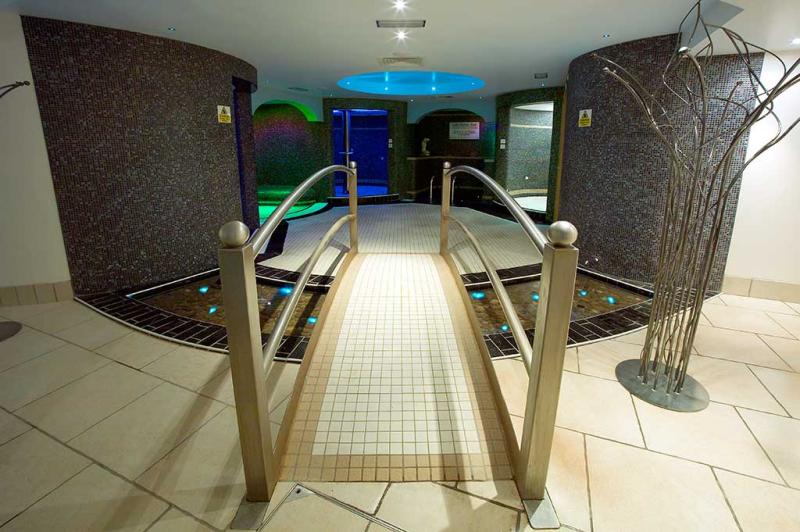The Impact of PMMA Fiber Optic on Lighting Design Trends

 PMMA fiber optic technology is significantly influencing
current lighting design trends, offering innovative solutions that are shaping
the future of how spaces are illuminated. Polymethyl methacrylate (PMMA), a
versatile and durable plastic, has become a key material in the development of
advanced fiber optic systems, transforming both functional and aesthetic
aspects of lighting design.
PMMA fiber optic technology is significantly influencing
current lighting design trends, offering innovative solutions that are shaping
the future of how spaces are illuminated. Polymethyl methacrylate (PMMA), a
versatile and durable plastic, has become a key material in the development of
advanced fiber optic systems, transforming both functional and aesthetic
aspects of lighting design.
Revolutionizing Ambient Lighting
One of the most prominent trends in lighting design is the
emphasis on creating ambient lighting that enhances the mood and atmosphere of
a space. PMMA fiber optics excel in this area, providing smooth, even
illumination that can be customized to suit various environments. This
technology allows designers to craft subtle lighting effects that promote
relaxation and comfort in residential settings, spas, and hospitality venues.
The ability to produce soft, diffused light without harsh shadows is a hallmark
of PMMA fiber optic systems, making them ideal for creating inviting and serene
atmospheres.
Advancing Color and Light Quality
The demand for high-quality light with accurate color
rendering is growing in importance, particularly in retail, art galleries, and
commercial spaces. PMMA fiber optics offer exceptional light transmission with
minimal loss, ensuring that colors appear vibrant and true to life. This
capability is crucial for settings where precise color representation is
essential, such as in fashion stores or exhibitions. By using PMMA fiber
optics, designers can achieve superior light quality that highlights the natural
beauty and details of objects, enhancing visual appeal and customer experience.
Enabling Flexible and Creative Designs
Flexibility is a key trend in modern lighting design, and
PMMA fiber optics provide unparalleled adaptability. These fibers can be bent
and shaped to fit intricate designs and tight spaces, allowing for the creation
of unique and imaginative lighting installations. From intricate ceiling
patterns to innovative wall designs, PMMA fiber optics enable designers to
explore new creative possibilities. This flexibility is particularly beneficial
for dynamic spaces like theaters, concert halls, and interactive museums, where
lighting needs to adapt to changing scenes and themes.
Promoting Energy Efficiency and Sustainability
As sustainability becomes increasingly important,
energy-efficient lighting solutions are at the forefront of design trends. PMMA
fiber optics are highly energy-efficient, requiring less power to deliver
bright and consistent light. This energy efficiency not only reduces
operational costs but also aligns with green building standards and
sustainability goals. Designers are incorporating PMMA fiber optics into their
projects to create eco-friendly lighting systems that reduce carbon footprints
and support environmental initiatives.
Enhancing Safety and Reliability
Safety and reliability are crucial considerations in
lighting design, particularly in public and high-traffic areas. PMMA fiber
optics are non-conductive, eliminating the risk of electrical shocks and
reducing fire hazards. This safety feature makes them ideal for use in schools,
hospitals, and public transportation hubs. Additionally, the durability of PMMA
fibers ensures long-lasting performance, reducing the need for frequent
maintenance and replacements. The reliability of PMMA fiber optics contributes to
more dependable lighting systems in critical environments.
Integrating Smart Technology
The integration of smart technology with lighting systems
is a growing trend, and PMMA fiber optics are at the forefront of this
movement. Smart lighting solutions allow for greater control and automation,
enabling dynamic adjustments based on occupancy, natural light levels, and user
preferences. PMMA fiber optics can be easily integrated with smart controllers
and sensors, creating responsive lighting environments that enhance convenience
and energy efficiency. This trend is particularly evident in modern office
buildings, smart homes, and intelligent urban infrastructure.
Facilitating Customization and Personalization
Customization and personalization are becoming increasingly
important in lighting design, with clients seeking bespoke solutions that
reflect their individual styles and needs. PMMA fiber optics offer extensive
customization options, allowing designers to tailor light colors, intensities,
and patterns to specific requirements. This ability to personalize lighting
solutions is highly valued in luxury residential projects, boutique hotels, and
branded retail spaces, where unique lighting designs can create distinctive and
memorable environments.
PMMA fiber optic technology is driving significant changes
in lighting design trends, providing versatile, high-quality, and sustainable
solutions that meet the evolving demands of modern spaces.
